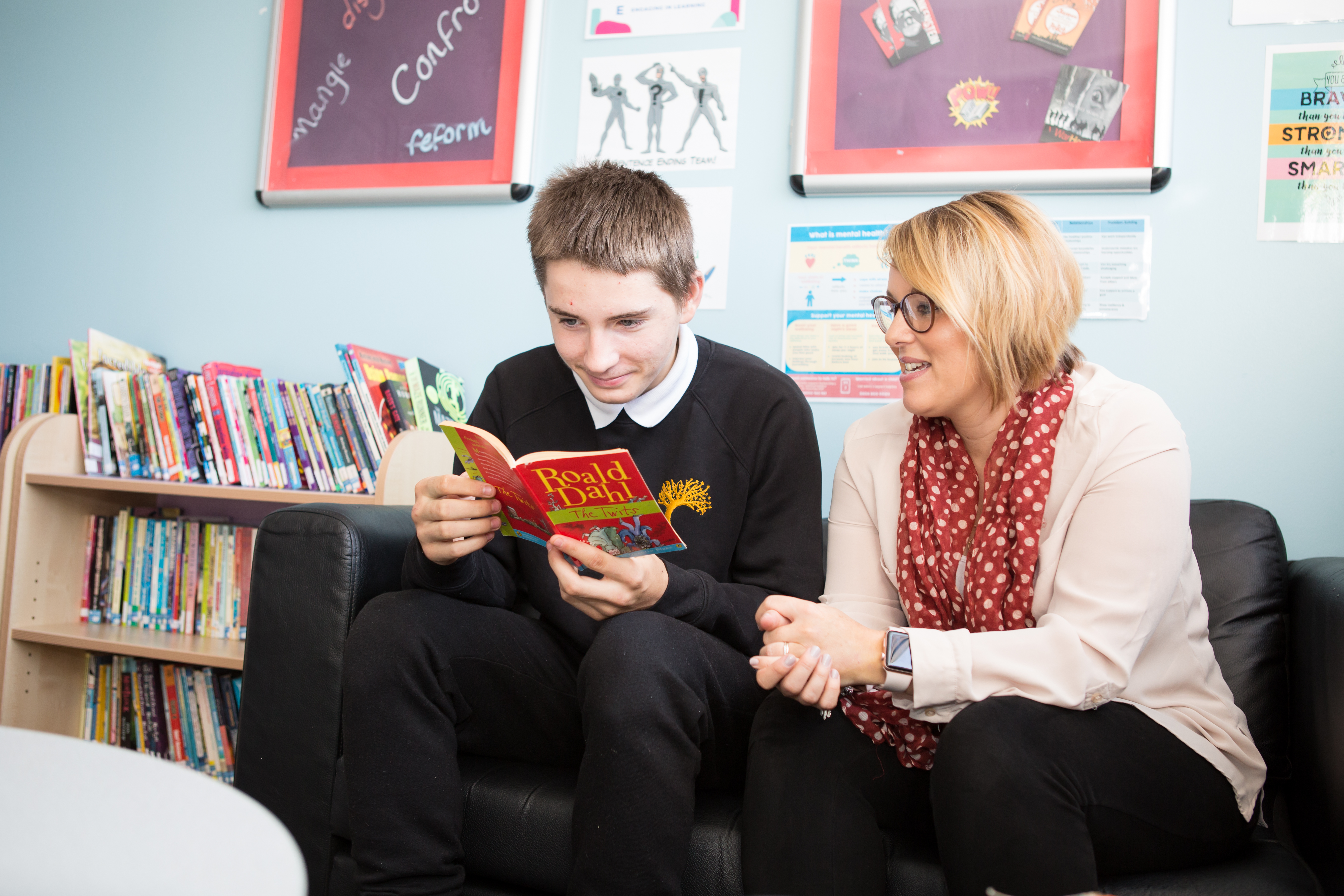Schools are doing their utmost to close the disadvantage gap that has plagued educational outcomes for too long, but with the gap already showing from as young as three-years-old, Dr Sam Parrett says we cannot do it alone.
Official data indicates that 3.9 million children live in poverty in the UK – around nine in an average classroom (DWP, 2022). And this figure is expected to worsen after the axing of the Universal Credit uplift introduced during Covid.
The effect of poverty on a child’s academic attainment is, unsurprisingly, stark. As we all know, gaps start opening at a very early age and once they are open, they continue to increase throughout the educational journey.
This is well demonstrated by research involving more than 11,000 young people born in 2000/01 (Elliot Major & Parsons, 2022). Of the 18% who failed to gain a Grade 4 or above in GCSE English language and maths, 48% had already been judged to be behind at age five.
Many of these young people will progress into further education. Of our own 6,600 college students, 70% need to retake their maths and/or English GCSE when they arrive, and more than two-thirds are studying at Level 2 or below.
These lower starting points are a direct result of educational disadvantage earlier in life. Even before the age of three, there are already strong differences emerging – relating to income – in cognitive and socio-emotional skills(Cattan et al, 2022). This is highly predictive of later success in education and in the labour market.
More than 40% of pupils at our network of schools are eligible for free school meals, with this number increasing to more than 80% at some individual institutions. The impact of this is evident in our classrooms every single day, with children facing many issues that inevitably have an impact on their learning.
Some children come to school hungry, which affects their concentration and focus. Others come in tired, experiencing bed poverty with nowhere quiet and comfortable to get rest. Some have parents in prison, some are homeless or living in unsuitable accommodation, with some experiencing domestic violence. Others have family members with alcohol and drug dependencies as well as many being affected by the sharp increase in mental health issues.
With the current cost of living crisis, these issues are only going to intensify. While headteachers are doing all they can to provide extra support where it is needed, budgets are tight. Thepromise of an additional £2bn for schoolsis welcome news and will cover some of the costs related to increased salaries – yet the astronomical rise in energy prices remains a huge concern.
The statistics speak for themselves in terms of the impact that disadvantage has. Children in receipt of free school meals, meanwhile, are 27% less likely to leave school with five GCSE passes at Grades 4 to 9 (DfE, 2022).
These disadvantage gaps have widened even further as a result of the pandemic. The NFER tracked the progress of 6,000 pupils between March 2020 and spring term 2022 and found that year 3 pupils from richer families are nine months ahead of their less affluent peers in reading and eight months ahead in maths – with no sign of this gap reducing (Wheater et al, 2022).
These are shocking but very real statistics. We may be talking key stage 1 here, but these pupils will soon be arriving in our secondary schools.
As both a school and college sector, we need to consider collectively what we can do to help address this growing issue.
First and foremost, we need to accept that schools alone cannot tackle these problems. Poverty and its many manifestations are societal issues – the extent of which need to be properly identified, recognised, and tackled in a joined-up way.
Every government department needs to be involved on a national level, with a genuine desire to understand what’s really happening on the ground.
Our schools, like many others across the country, deal with the effects of poverty on a daily basis. School staff are working on the front-line, providing free breakfasts and uniforms where possible, as well as offering families support to help them access other services and agencies.
But to make a difference in the longer term, “disadvantage” must be identified and addressed earlier.
Another key element is identifying SEN more swiftly. However, here as well teaching professionals are being limited by a system that is struggling to cope with demand, including a shortage of educational psychologists and an unacceptable waiting time for Education, Health, and Care Plans.
It is encouraging to hear the education secretary recently flagging the SEND Green Paper and reforms to the system as being a priority, with a promise to announce plans “soon”.Change really can’t come soon enough for the many children awaiting assessment.
No child will reach their full potential if they are unable to access education in a setting that is right for them. Teachers will continue to do their best for every pupil, but for those needing specialist help, a much wider network of support is needed.
Tackling lifelong disadvantage can only be done by looking holistically at the issues across education, health, welfare, sand the many factors that lead people to being classed as vulnerable.
We also need to focus more on what happens to these young people when they finish school. High quality progression pathways into further education and apprenticeships need to be accessible, with extra support for those who need it to ensure learning is sustained and qualifications achieved.
We need to consider, develop, and implement solutions to improve the experiences and life chances for disadvantaged children and young people from birth into adulthood. We also need to re-focus on what constitutes a “good life” and what “good outcomes” truly look like in these scenarios.
Roy Blatchford(2023) has made some interesting suggestions for the year ahead in education.
These include smaller reception classes and two years of free musical instrument tuition for 10-year-olds as well as a “radical reshaping” of GCSEs (only 25% written exam) and high quality BTEC provision for all 16 to 19-year-olds.
He also suggests reforming Ofsted and ending the funding apartheid for primary schools. All sensible ideas, but they require money and political support – and won’t happen overnight.
Schools alone can’t level the playing field for disadvantaged children, but education is undoubtedly key to improving lives. We must continue to advocate for and provide the right pathways for these young people to ensure everyone has access to opportunity, despite the many other challenges they may face.
- Dr Sam Parrett is group principal and CEO of London and South East Education Group.
Further information
- Blatchford: Roy Blatchford’s Column, Blinks Education, January 2023:www.blinks.education/royBlatchfordsColumn
- Cattan et al: Early childhood and inequalities, IFS Deaton Review of Inequalities, 2022:https://ifs.org.uk/inequality/early-childhood-inequalities-chapter
- DfE: Academic Year 2021/22: Key stage 4 performance, October 2022:https://bit.ly/3vVyZTN
- DWP: Households below average income, March 2022: https://bit.ly/3DKzALc
- Elliot Major & Parsons: The forgotten fifth: examining the early education trajectories of teenagers who fall below the expected standards in GCSE English language and maths examinations at age 16, CLS Working Paper 2022/6, UCL Centre for Longitudinal Studies, 2022: https://bit.ly/3kcUaOs
- Wheater et al: Impact of Covid-19-related school closures in key stage 1 on attainment and social skills of pupils in year 2 and Year 3 in academic year 2021/2022, NFER & EEF, November 2022:https://bit.ly/3iz3DPG

